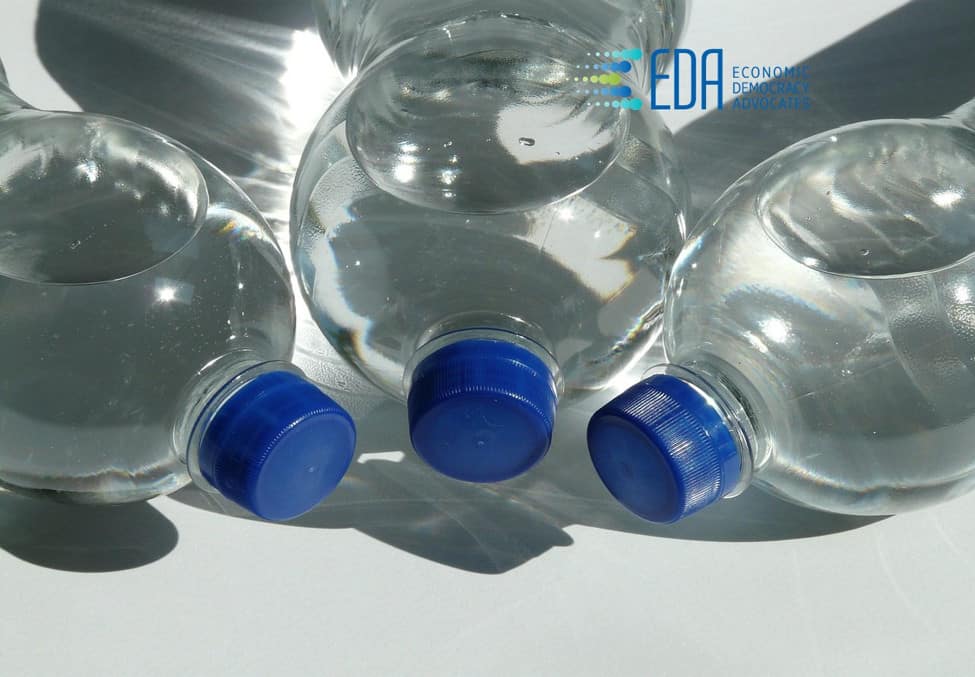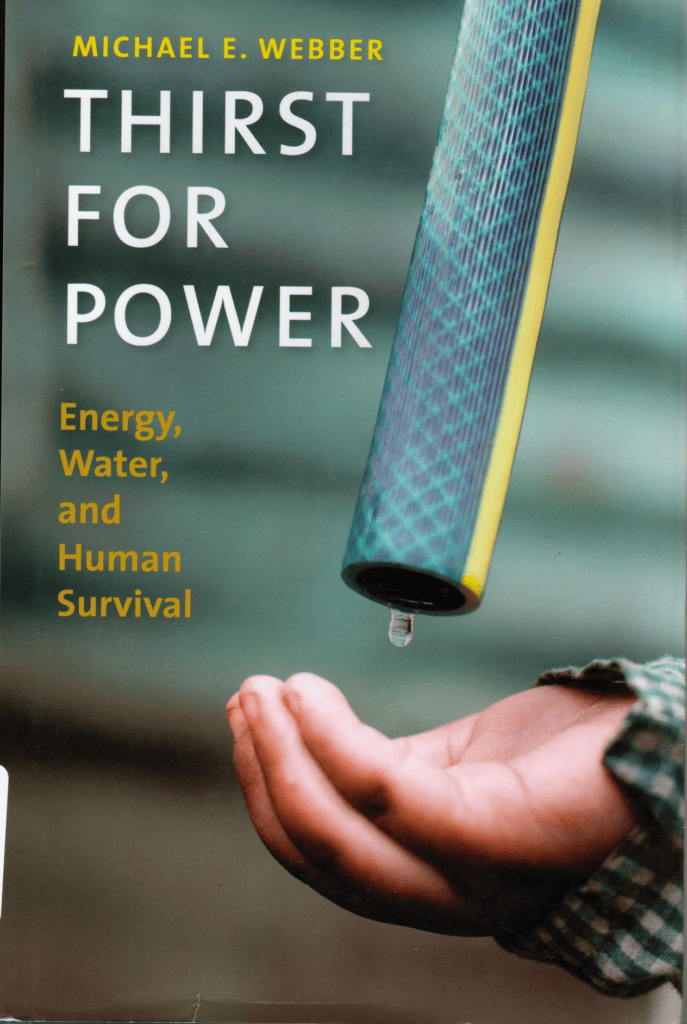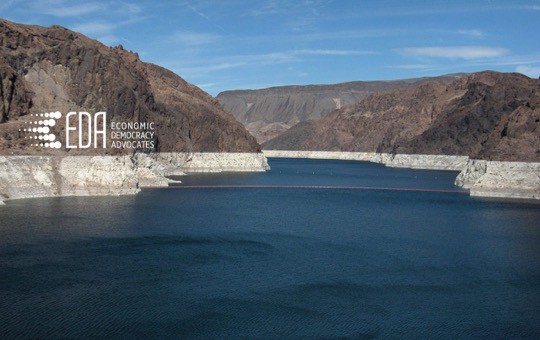Article written by Janice Bobbie
In the last 20 years, Nestlé’s bottled water sales in the United States and Canada has grown tenfold from $400-million (U.S.) to approximately $4-billion. Nestlé has aggressively acquired water resources in communities all over North America. They either have direct ownership, leases, easement or other arrangements that allows them to extract water in 75 springs across North America, in 40 locations. When you own the water rights, there is often no limit on how much water you can take out of the ground. But at what cost to the Commons?
Nestlé makes huge profits on water extracted from rural communities. These communities are then left to deal with damage to watersheds, increased pollution and loss of a quiet rural lifestyle. Across North America, Nestlé buys public water and sells it back to the public at rates 3,000 to 5,000 times higher than what they paid for that water. Here’s a quick overview of some of Nestlé’s more controversial projects in the U.S and Canada.
In Chaffee County, CO one of several conditions in their water permitting states that no water can be removed from the watershed unless there is a positive economic benefit to the area. So Nestlé did an economic analysis that showed several benefits, but an independent economist slammed the application because Nestlé’s claims of benefits were greatly exaggerated or non-existent. In addition, Nestlé’s environmental impacts report lacked any real baseline data. Pulling out the big guns, Nestlé then showed up at a couple of public meetings to woo the community with high-priced consultants and attorneys from Denver. They knew that if they lost in Chaffee County, it would hamper their bid to tap into springs all over Colorado.

On the shores in Fryeburg, ME. Image courtesy of: Wikimedia Commons
Nestlé has sued and appealed the town of Fryeburg, ME five times when the town reversed a previous decision to drill a well nearby and pipe water to a Fryeburg residential area. Nestlé lawyers argued at the Maine Supreme Court that their right to grow market share was more important that the town’s rights of control. Repeated litigation serves Nestlé’s purpose—to bankrupt small towns and serve as a warning to anyone who considers fighting the world’s leading food and beverage multinational.
In McCloud, CA around 2003, Nestlé negotiated a contract in secret, without any public scrutiny, to build a one-million sq. ft. water bottling plant. There was only one public review of the contract that essentially handed over control of McCloud’s water supply for up to 100 years. Nestlé was paying $26.50 per acre foot for water – which is a small fraction of the market price. The contract terms also stipulated no cost increase to Nestlé for the duration of the 100-year contract. While Nestlé enjoyed first rights to the water (over the town’s residents), they also offloaded most infrastructure costs to the town. Noise and air pollution would rise due to increased traffic from 250 to 300 trucks per day. Nestlé never conducted any environmental review of the impacts of water removal on the watershed. McCloud citizens took Nestlé to court and the original contract was ruled null and void by the Siskiyou County Superior Court. Nestlé fought back investing millions in public relations and lobbying to get the bottling plant going. But by 2009, they abandoned their plans due to national media exposure, and a relentless grassroots strategy, testimony before Congress and comments from the California Attorney General.
 In Mecosta County, MI Nestlé was sued for damage done to the watershed. The company was ordered to cease pumping immediately. Forced to comply, they worked out a deal to halve their pumping rate, but they still continued their litigation while looking for new sources of water. In an even more bizarre turn, the Michigan Department of Environmental Quality (DEQ), who allowed Nestlé’s first damaging water extraction, permitted yet another Nestlé extraction well, despite flawed data. Through lawsuits and heavy-duty lobbying Nestlé was able to successfully weaken water protection rules in their favor, despite adverse legal decisions and public opposition.
In Mecosta County, MI Nestlé was sued for damage done to the watershed. The company was ordered to cease pumping immediately. Forced to comply, they worked out a deal to halve their pumping rate, but they still continued their litigation while looking for new sources of water. In an even more bizarre turn, the Michigan Department of Environmental Quality (DEQ), who allowed Nestlé’s first damaging water extraction, permitted yet another Nestlé extraction well, despite flawed data. Through lawsuits and heavy-duty lobbying Nestlé was able to successfully weaken water protection rules in their favor, despite adverse legal decisions and public opposition.
About an hour outside of Toronto, Ontario, Nestlé had their eye on a well in the town of Aberfoyle. In an attempt to stop Nestlé from owning the rights to the aquifer, the town put in an anonymous offer to buy the well, but they were outbid by Nestlé. Nestlé pays a mere $3.71 for every million liters of water it takes out of the aquifer. This cost recovers only about 1.2% of the government’s total water-quality management costs. The aquifer serves a large agricultural area and is the only source of water for Aberfoyle as well as the nearby larger university town of Guelph. Climate change resulted in drought conditions over the last two years and to further exacerbate the situation, Guelph’s population is predicted to increase 46% by 2041. This will put incredible stress on the existing water supply. As of January 2017, Canada’s Liberal government has proposed increasing the permit fee from $3.71 to $503.71 per million liters. Although it’s a step in the right direction, it’s still not enough.
Since 2000, the residents of the District of Hope in British Columbia have been at loggerheads over Nestlé pumping water from Kawkawa Lake. Nestlé vehemently defends its operations saying that they withdraw less than 1% of the available groundwater in the Kawkawa Lake aquifer. But residents’ hackles were raised when a drought forced residents to restrict water use while Nestlé was allowed to continue the same pace of production. The company bottles approximately 265 million liters of water from B.C. Up until 2015 they paid absolutely nothing for the water. In 2016, after pressure from residents, the province added a regulation requiring any company extracting clean drinking water to pay $2.25 per million liters of water. According to activist group The Council of Canadians, that rate is low compared to other provinces. Clean groundwater is up for grabs in most of the province and Nestlé has the upper hand because of their size.
So should we boycott Nestlé? Yes, and stop buying bottled water. The Council of Canadians is asking for more than a boycott. It’s calling for “Nestlé to stop profiting from water altogether. Wasting our limited groundwater on frivolous consumptive uses such as bottled water is madness,” it said.
And finally, be aware of what’s going on in your community. If there are environmental issues, learn more about it and get involved. Your voice counts. It can make a difference.


